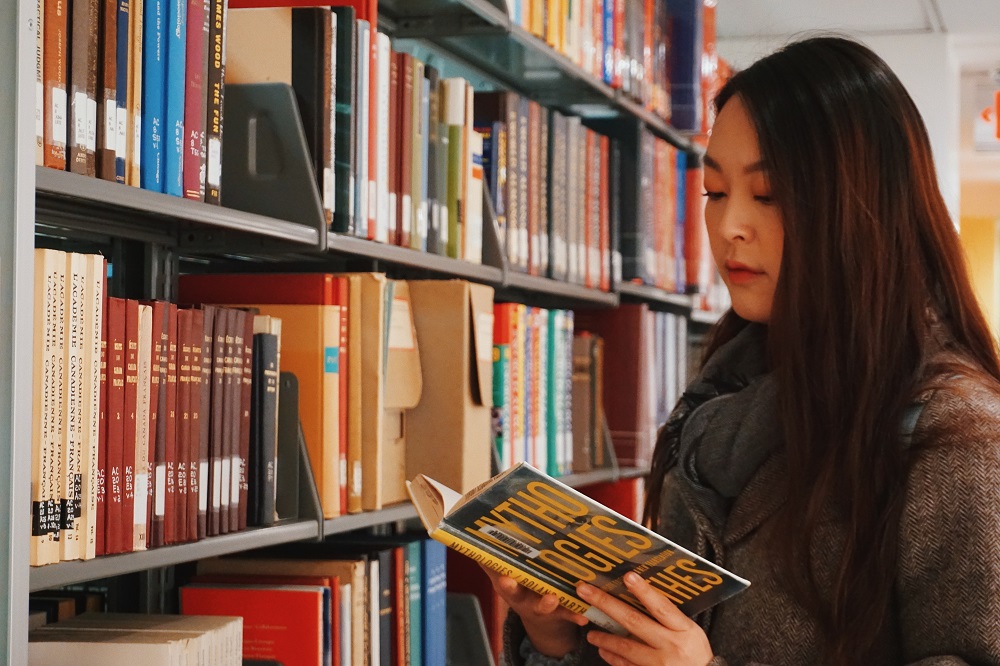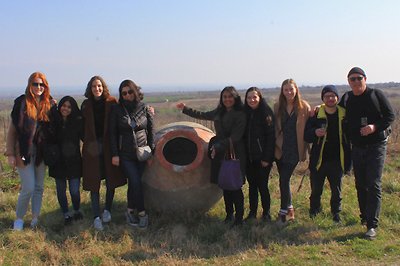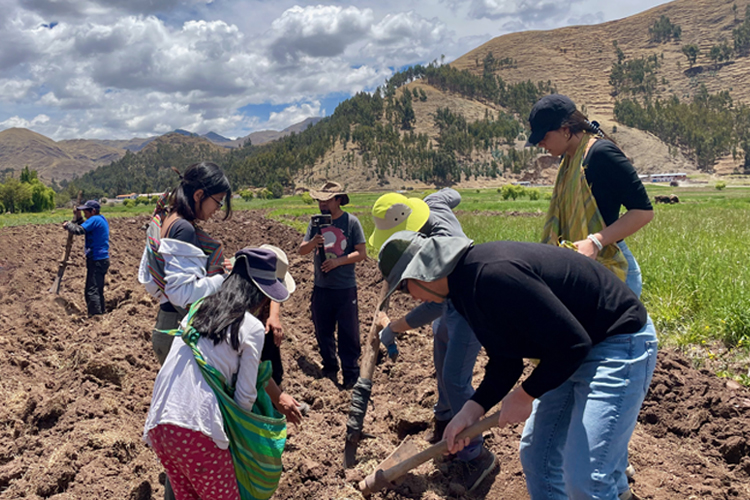
Students in the humanities study all aspects of human culture, including language, literature, history, philosophy, art, architecture, religion and culture. From ancient Egypt to post-colonial literature, from languages to the civilizations of Asia, a wide variety of courses and programs provide humanities students with the knowledge, intellectual skills and habits of thought indispensable to a modern education.
Applying to the Humanities
OUAC Admission Code: TAH (Humanities)
Supplementary Application Form Required: No
Admission Prerequisites: English
Approximate Admission Range: Low to mid 80s
Admission Requirements by Curriculum:
- Ontario High School and Other Canadian Provinces
- US High School Admission Requirements
- International Baccalaureate (IB) Admission Requirements
- British Patterned Admission Requirements
- Caribbean Advanced Proficiency Examination (CAPE) Admission Requirements
- Other International School Admission Requirements
It is important to note that in addition to the courses required for admission into the Humanities admission category listed above (English), some programs of study may require you to take additional specific high school subjects in order to take specific courses in first year, or for entry into that program in second year.
Since you are admitted to the general Humanities admission category, during your first year you will not be enrolled in a specific program. This means that during your first year, you are able to explore a number of different areas of study. You apply to a program (e.g., major in international relations) at the end of your first year, and can combine programs outside of your own admission category, excluding programs in Rotman Commerce.
To prepare for admission into your program of study at the end of first year:
Step 1: Search for your desired program of study (e.g., international relations) in the table in the "Humanities (H.B.A.)" section below
Step 2: Find the high school subject prerequisites for your desired program of study listed under Subject(s) Required in Addition to English
Step 3: These prerequisite subjects allow you to enrol in introductory first year courses needed for your program of study selection at the end of first year. You can find these courses listed under Program Area in the Academic Calendar
Humanities Programs
With more than 70 programs of study to choose from, Humanities offers a whole world of history, art and culture for you to discover. Start exploring our programs below.
Legend:
J: This program of study is jointly listed under the Humanities and Social Sciences admission categories. This means that on your application, you can apply to either the Humanities or the Social Sciences admission category.
Why Study Humanities at Arts & Science?

Discover the World Beyond the Textbook
From exploring Italian culture in Tuscany to learning Shakespeare in England to participating in an archaeological dig in Georgia, the world is truly yours to discover as a humanities student. You'll have opportunities to fully immerse yourself in your studies, whether it's learning a new language, travelling the world or completing an internship. Learn more about study abroad, internship and research opportunities for Arts & Science students.

World-Class Teachers and Programs
From the #1 ranked history department in Canada to one of the most established cinema studies programs in North America, you'll have access to world-renowned programs and instructors.
Humanities Careers
#1 in Canada for graduate employability — recruiters from top companies have consistently ranked U of T as #1 in Canada and among the best in the world at preparing its students for the workplace. With an arts degree from a world-renowned university, you will have a competitive advantage when applying for jobs in fields such as:
- Education
- Entrepreneurship
- Government and public policy
- Law
- Marketing
- Media and communications
- Project management
- Publishing
- Sales
- The arts
- Travel and tourism
Use Career Navigator to explore more careers in the humanities.
Graduates from Arts & Science humanities programs include renowned authors Margaret Atwood and Malcolm Gladwell and award-winning film director David Cronenberg. Read some of our alumni success stories below.
When you're at U of T, you have the best professors in the country and I just felt I could do so much. My first book was published when I was an undergrad there. — Souvankham Thammavongsa, BA 2003







